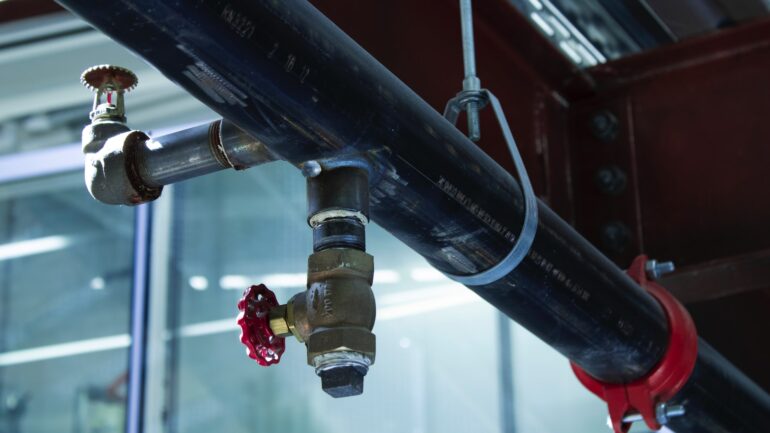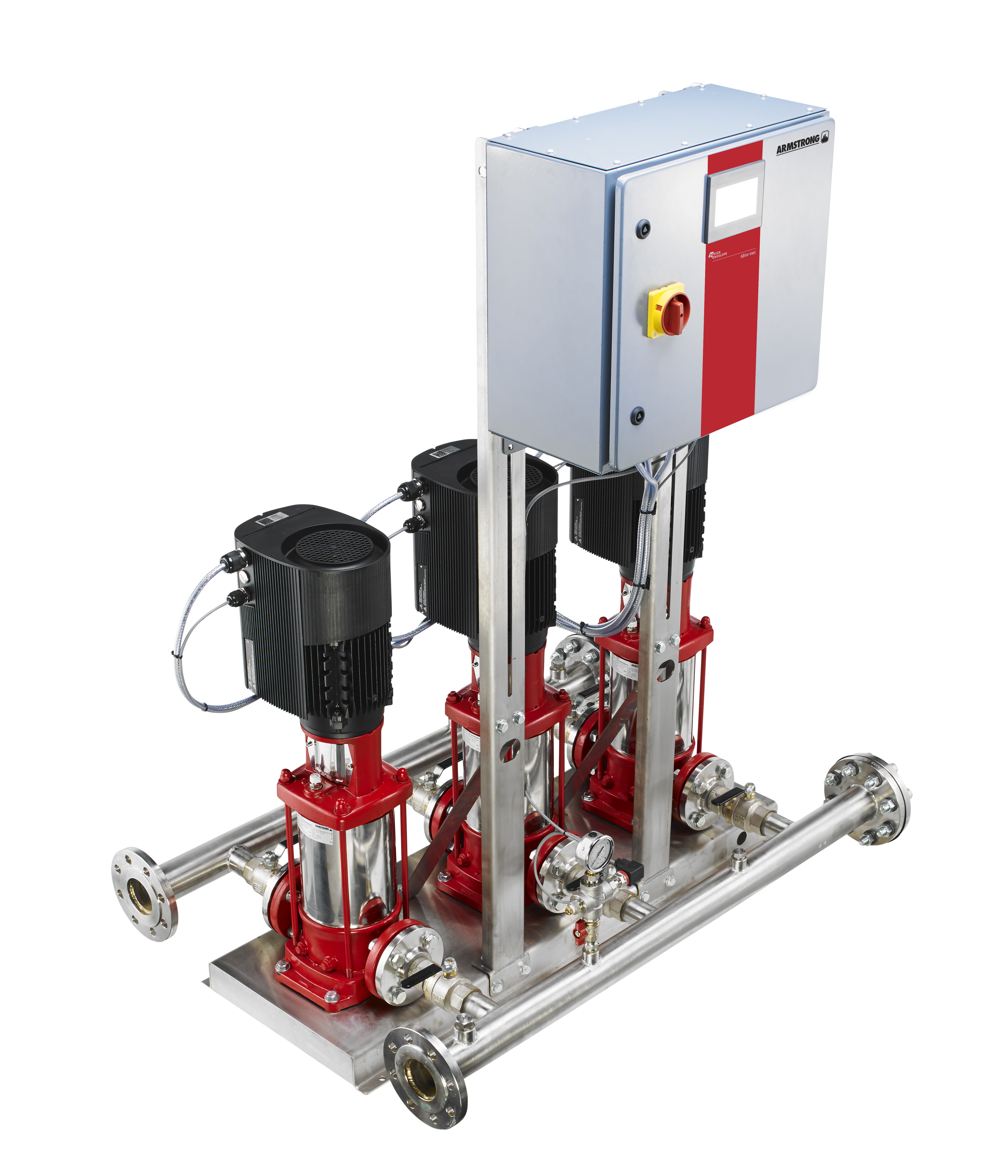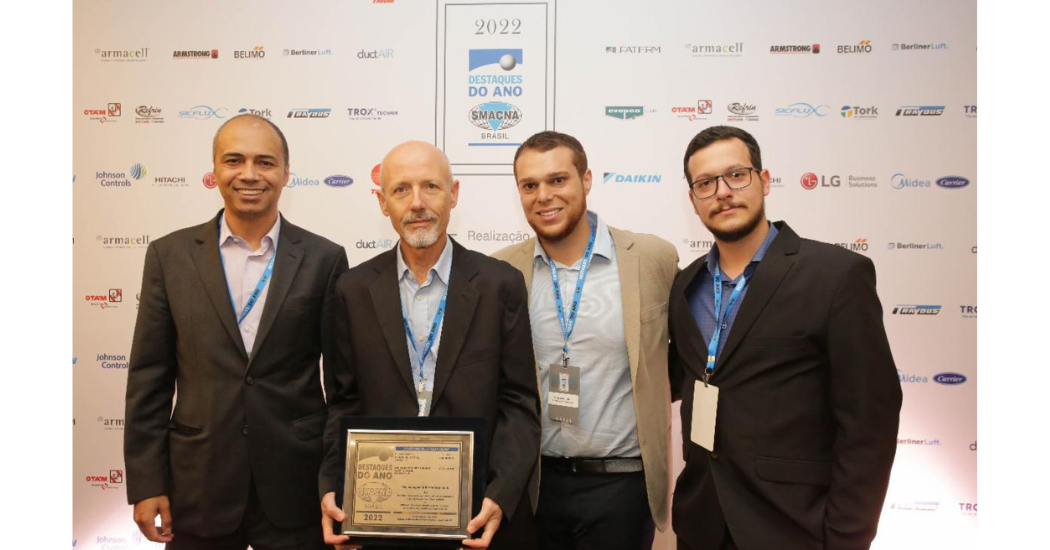Key Insights Into Building Envelopes Design Features And Construction Practices
Topics: In The Media, Design Envelope Technology
Armstrong Unveils Pressurizing Pump For The Latin American Market
As Seen On: pumpengineer.net May 24, 2023
Armstrong Fluid Technology has introduced a new high-performance Pressurizing Pump for the Latin American residential market that is designed to increase hydraulic pressure in homes that have dishwashers, high-flow showerheads, water heaters and other high-demand equipment.
Topics: Armstrong Fluid Technology, In The Media, Pumps
Circulator Basics - Answers To The Most Common Questions
What is the purpose of circulator? What is a circulator pump used for?
In a hydronic heating system, hot water is moved from the heat source (the boiler), through a pipe to a radiator, where the convective qualities of the radiator allow the heat to rise from the hotter radiator to the colder air in the room.
Topics: In The Media, Circulators, ECM, Variable Speed Drives
Armstrong Fluid Technology names new director of global sales enhancement
Topics: Armstrong Fluid Technology, In The Media, Sales Director
Everything You Need to Know About Armstrong Vertical In-Line Pumps
As Seen On: factmint.com February 13, 2023
Learn about Armstrong Vertical In-line Pumps and the advantages of this innovative solution for water and wastewater applications. The article will cover the features and benefits of Armstrong Pump Manager and how it can help you save energy. This unique solution includes web-accessible trends, analysis, and automated reports that help you make informed decisions and deliver the highest HVAC performance. You’ll also learn about Armstrong’s Design Envelope, which allows you to save up to 70% on your utility bill.
Topics: Energy Saving, VIL, In The Media, Pump Manager, Replacement Parts, Vertical In-Line
An Introduction to Domestic Water Pressure Booster Pumps
A domestic water pressure booster system is essential for buildings with inadequate supply pressure from the city or buildings served from storage tanks. A booster ensures potable water is available at appropriate pressures on every level of a building. Because flow demand in most buildings is highly variable, variable frequency drives and automatic controls are an excellent option to reduce the energy used to maintain constant pressure.
Topics: Design Envelope, In The Media, Booster, Domestic Water Systems, Domestic Water Pressure Booster System
As Seen On: gulfconstructiononline.com February 13, 2023
The retrofit of heating, ventilation and air-conditioning (HVAC) equipment could be a potential shortcut along the road to net-zero, says KEVIN LAIDLER, Sales Director, Middle East and Africa of Armstrong Fluid Technology.
Armstrong’s Pump Manager helps address performance issues.
To many of us, the construction boom that transformed a barren desert into a glittering metropolis may seem like only yesterday, but those once newly-constructed buildings are now more than 15 years old. Since then, we’ve seen the advent of Google, the rise of Facebook, and the introduction of driverless cars. With that in mind, how can we possibly believe that heating, ventilation and air-conditioning (HVAC) systems installed before the launch of the first iPhone are still adequate?
Topics: Retrofit, HVAC, In The Media, Pump Manager, Active Performance Management
Armstrong Fluid technology announces partnership with Hysopt for HVAC Digital Twin Modelling
As Seen On: bpma.org February 10, 2023
Armstrong Fluid Technology has formed a strategic partnership with Hysopt to bring customers new insights into HVAC energy saving options, harnessing state-of-the-art digital twinning.
Bringing together Armstrong’s extensive experience of installations worldwide, and Hysopt’s powerful technology, the new partnership will provide customers with more robust scientific simulation and verification of HVAC system energy and carbon savings than ever before.
Stephen Hart, spokesperson for Armstrong Fluid Technology explained: “Reliable information on the potential for improving energy efficiency of HVAC systems has never been more crucial. World events have brought a new sense of urgency.
Topics: Energy Saving, HVAC System, In The Media, Hysopt
Armstrong Honored by SMACNA Brazil As A Key Supplier On Two Award Winning Projects
As Seen on: empoweringpumps.com December 14, 2022
Armstrong Fluid Technology was recently honored by the Sheet Metal and Air Conditioning Contractor’s Association (SMACNA) Brazil for being a Key Supplier to two of the winning projects in the Highlights of the Year – 2022 awards competition.
Topics: Awards, HVAC, In The Media, SMACNA BRAZIL
Canadian Ambassador tours Romania Armstrong facility
As Seen On: plant.ca October 14, 2022
Armstrong Fluid Technology welcomed Annick Goulet, Ambassador of Canada to Romania, the Republic of Bulgaria, and the Republic of Moldova, as well as Mr. Darius Adrian Postelnicu, Mayor of Jimbolia, at the Armstrong facility in Jimbolia, Romania.
Topics: In The Media, Romania facility



.jpg)









